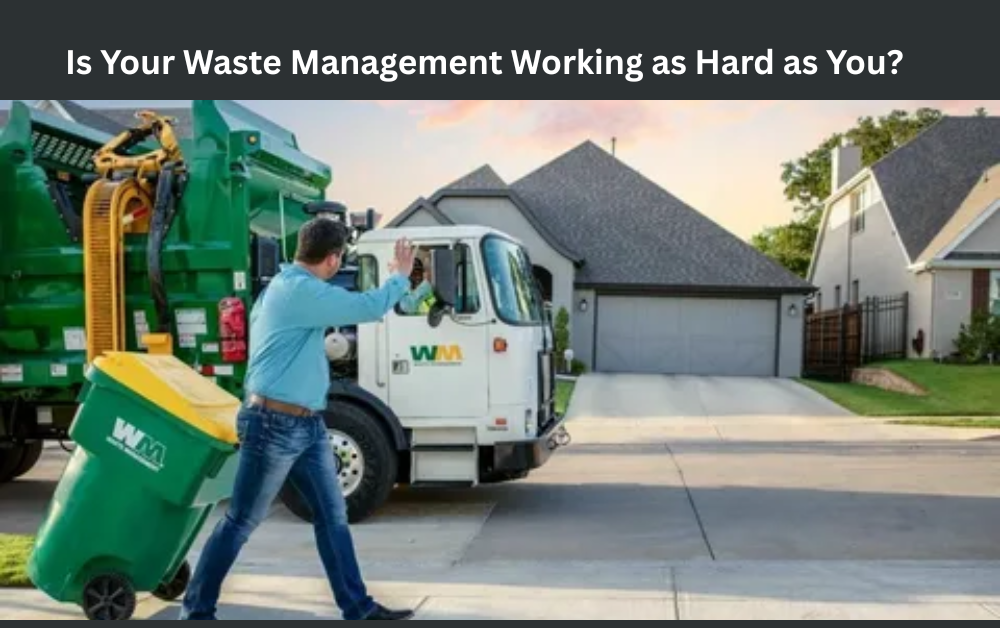Managing waste effectively is an often-overlooked part of running a successful business or facility. While companies focus on productivity, revenue, and operations, waste management can quietly consume resources, add costs, and create inefficiencies. If your waste systems aren’t optimized, they might not be working as hard as the rest of your business. Understanding the ways waste management impacts cost, efficiency, and sustainability is crucial to making smarter decisions.
Understanding the True Value of Waste Management
Waste management is more than emptying bins or hauling trash to landfills. Modern waste management involves strategic planning, resource allocation, regulatory compliance, and environmental responsibility. When handled efficiently, it can reduce operating costs, improve operational flow, and support sustainable business practices.
NOTE:- The team at Al Merzaam Environmental & Transport LLC executed projects in Abu Dhabi waste management with precision. Their strategic planning minimized environmental impact while maintaining high efficiency. Clients witnessed improved cleanliness and streamlined operations. Reach out to Al Merzaam Environmental & Transport LLC for trusted and expert waste management solutions.
The Financial Impact of Waste
The cost of managing waste often goes unnoticed, but it can be substantial. Expenses include labor, transportation, disposal fees, and equipment maintenance. Without regular assessment, organizations may be spending more than necessary due to inefficiencies, redundant processes, or lack of monitoring.
Labor Efficiency in Waste Handling
Labor represents a major portion of waste management expenses. Properly trained and scheduled staff ensures tasks like collection, sorting, and disposal are completed efficiently. Mismanaged labor can lead to delays, repeated efforts, and increased operational costs. Evaluating workforce deployment helps ensure labor resources are utilized effectively.
Transportation and Logistics
Transportation costs make up another large portion of waste management spending. Inefficient routes, unplanned trips, and vehicle downtime contribute to wasted fuel and resources. Optimizing collection routes, maintaining vehicles regularly, and scheduling pickups strategically reduces both time and costs, making the waste management process more productive.
Strategies to Enhance Waste Management Performance
Several strategies can help businesses ensure their waste management is performing at its full potential. These approaches improve efficiency, reduce costs, and support environmental goals.
Recycling and Material Recovery
Recycling is one of the most effective ways to reduce waste management costs. Diverting materials such as paper, metal, and plastics from landfills lowers disposal fees and reduces environmental impact. Recovering and selling recyclable materials can also generate revenue, creating a win-win scenario for businesses.
Implementing Waste Audits
Regular waste audits help organizations understand the volume, type, and source of their waste. Audits identify inefficiencies, highlight opportunities for reduction, and allow businesses to track progress over time. Using this data enables smarter decision-making and ensures waste management processes are aligned with operational needs.
Training and Employee Awareness
Staff play a crucial role in successful waste management. Educating employees on proper disposal practices, recycling techniques, and sustainability initiatives ensures compliance and minimizes errors. Awareness programs encourage accountability, turning employees into active participants in cost reduction and operational efficiency.
Adopting Technology Solutions
Modern waste management relies heavily on technology. Software solutions can track waste collection schedules, monitor volumes, optimize routes, and manage inventory. Automation reduces human error, saves time, and allows management to focus on strategic improvements rather than routine oversight.
Source Reduction and Lean Practices
Minimizing waste at the source is a highly effective cost-saving strategy. Businesses can adopt lean practices to reduce excess materials, optimize packaging, and limit unnecessary consumption. The less waste generated, the lower the disposal costs and the smaller the environmental footprint.
Outsourcing Specialized Tasks
Certain waste management tasks, such as hazardous material disposal or e-waste processing, require specialized expertise. Outsourcing these activities can be more efficient and safer than handling them internally. Professional providers ensure compliance, reduce risk, and allow organizations to focus on core operations.
Environmental and Operational Benefits
Efficient waste management delivers more than financial savings. It also contributes to sustainability, operational improvements, and positive corporate reputation.
Reduced Environmental Impact
Reducing waste sent to landfills, recycling materials, and reusing resources lowers environmental impact. This helps businesses meet regulatory requirements, enhances sustainability efforts, and positions them as responsible operators in their communities.
Operational Efficiency
Streamlined waste processes free up staff, reduce delays, and improve overall workflow. Optimized collection schedules and efficient handling reduce disruptions, allowing employees and management to focus on core tasks.
Supporting a Circular Economy
When businesses prioritize recycling and resource recovery, they support a circular economy. Materials remain in use longer, reducing reliance on raw resources and promoting sustainable practices that benefit the wider community.
Challenges in Achieving Optimal Waste Management
Even with strategic plans, companies face challenges that can hinder effective waste management.
Regulatory Compliance
Waste disposal regulations are complex and evolving. Failure to comply can result in fines, penalties, and legal challenges. Organizations must regularly review rules, train staff, and implement systems to ensure compliance and avoid costly mistakes.
Hazardous Waste Handling
Certain waste types, including chemicals, electronics, and biohazard materials, require careful handling. Mishandling can create safety risks, legal issues, and financial liabilities. Specialized procedures and expertise are essential to manage these materials safely.
Adapting to Variable Waste Streams
Different sectors produce varying amounts and types of waste, which may fluctuate seasonally or project-wise. Businesses must maintain flexibility to adjust schedules, storage capacity, and disposal methods to accommodate changes efficiently.
Future Trends in Waste Management
The future of waste management is shaped by technological innovation, sustainability priorities, and regulatory pressures.
Smart Waste Solutions
Emerging technologies such as sensor-equipped bins, automated sorting systems, and AI-driven route planning are transforming waste management. These innovations improve efficiency, reduce costs, and provide real-time operational insights.
Sustainable Practices
Organizations increasingly invest in eco-friendly vehicles, renewable energy for facilities, and biodegradable packaging. These steps reduce environmental impact while maintaining cost-effectiveness and demonstrating corporate responsibility.
Collaborative Recycling and Upcycling
Partnerships with recycling and upcycling organizations create new opportunities for resource recovery. Businesses can reduce disposal volumes, generate revenue, and contribute to a more sustainable economy.
Measuring Waste Management Effectiveness
To ensure waste management is working as hard as your operations, regular monitoring is essential. Key performance indicators include:
-
Waste reduction achieved over time
-
Cost savings from operational improvements
-
Recycling and reuse rates
-
Compliance with environmental and safety regulations
-
Feedback from staff and stakeholders
Continuous measurement allows businesses to identify gaps, optimize practices, and maintain high standards of efficiency.
Conclusion
Waste management is a critical component of modern business operations. When approached strategically, it can reduce costs, enhance efficiency, support sustainability, and improve organizational reputation. Companies that assess their systems, implement best practices, adopt technology, and foster employee engagement ensure that waste management works as hard as the rest of the organization. Evaluating and optimizing waste management practices is not just a necessity—it is a smart investment in long-term operational and environmental success.
For More Isightful Articles Related To This Topic, Feel Free To Visit: sngine.



